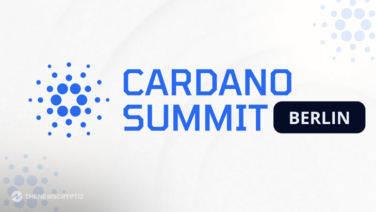Without a doubt, artificial intelligence has been the big topic of the year 2024, along with the exponential rise that NVIDIA and the big technology companies have presented. We cannot deny the impact that this will have on our modern society. However, we have not yet realised the risks of this technology being in so few and opaque hands.
TECHNOLOGY
This has lit the entrepreneurial spark in 3 university professors who have been discussing the future of Artificial Intelligence for years. They decided to put their hands to work and for 2 years they worked silently to create an artificial intelligence that could have the same concept as Bitcoin. An AI that is distributed in thousands of nodes around the world and that is impossible to be censored by Corporations or Governments.
But although it sounds like science fiction, its operation is simpler than it seems. The neurons are simulated using mathematical functions and those millions of neurons are recruited using EVO’s. EVO’s are the applications that run on the network and are made by the developers. Developers receive incentives to develop these applications by collecting fees and royalties from other developers. Users pay in EVA (an ERC-20 token developed on the Ethereum network) for the use of EVO services.
The entire interconnected network of EVO’s, neurons and nodes make up an entity called: EVA.
DECENTRALIZATION
The development and governance of the project is in the hands of the EVA token holders. They approve and implement the various changes to the technology. Although the founders have played a key role in the beginning, today more than 20 collaborators work on the development of this free technology. Licensed under the GNU General Public License v2.0 (GNU GPLv2).
EVA PROJECTION
Initially, the founders received several offers from AI companies and laboratories to develop EVA in their facilities. But no deal seemed convenient to them since that meant losing the values and independence of the project in private hands. On the other hand, economic dependence would prevent technology from being developed adequately. That is why the founders decided to launch the technology using the power of the community.
IDO y Tokenomics
The IDO (Initial Decentralized Offer) will be carried out during Q3 – Q4 of 2024 with the purpose of raising 50 ETH for the operation of the project. There will be no seed rounds or pre-sale rounds, only a single IDO round where everyone will buy at the same price and 100% of the circulation will be unlocked at first to avoid dilutions in the future. 80% of the circulation will be in the hands of the community and the remaining 20% will be used for marketing, founders, development, and liquidity in centralized and decentralized exchanges.
.
Summary
- Artificial intelligence has been an important topic in 2024, but its concentration in a few hands is also worrying.
- Three university professors created a decentralized artificial intelligence called EVA, inspired by Bitcoin.
- EVA is composed of nodes, simulated neurons and applications (EVO) that run on the network.
- Users pay with the EVA token (ERC-20) for EVO services.
- The development and governance of EVA is in the hands of the EVA token holders.
- The founders rejected offers from AI companies and labs to maintain the project’s independence and values.
- The IDO (Initial Decentralized Offering) will be held in Q3-Q4 of 2024 to raise 50 ETH for the operation of the project.
- 80% of the circulation will be in the hands of the community and the remaining 20% will be used for marketing, founders, development and liquidity in exchanges.








